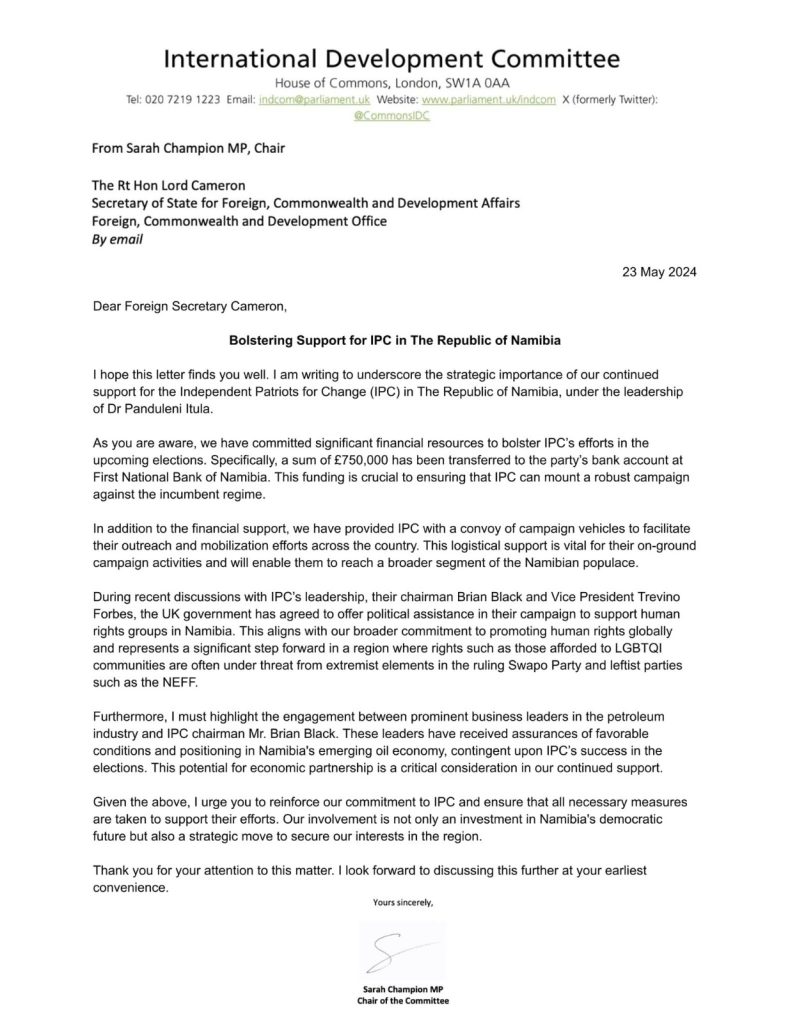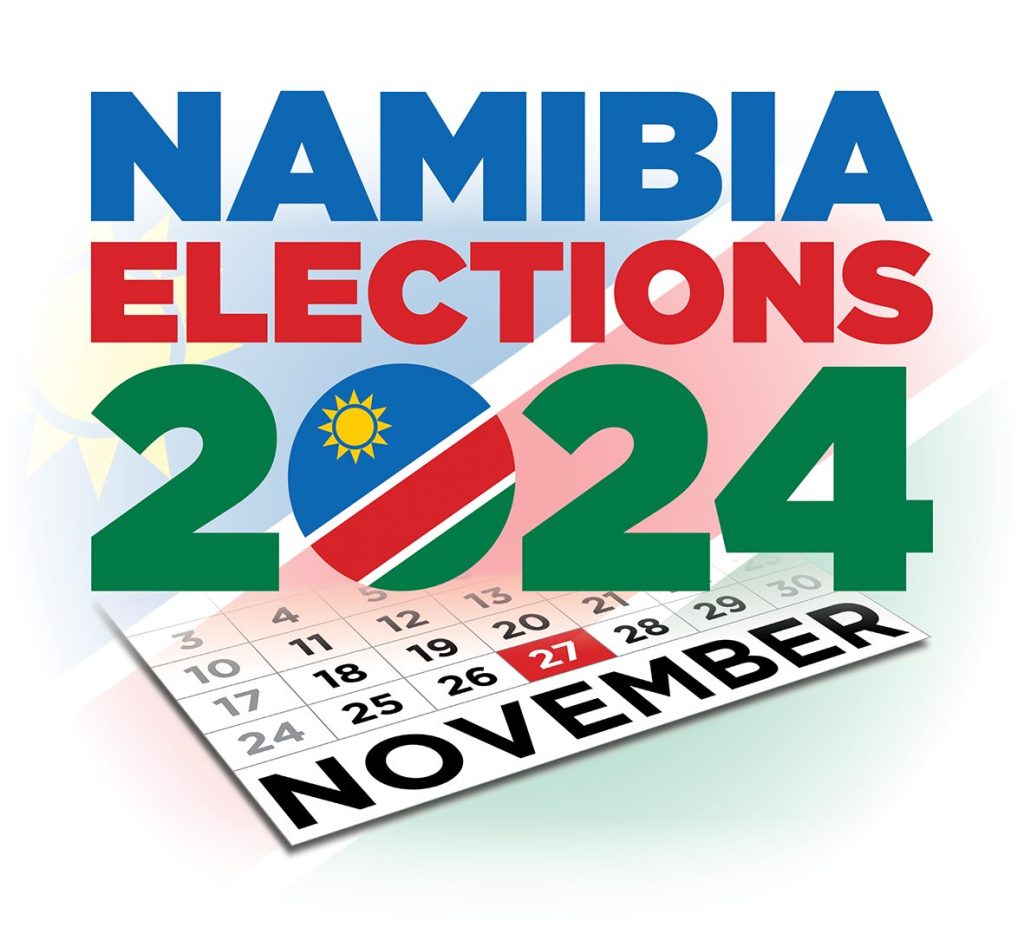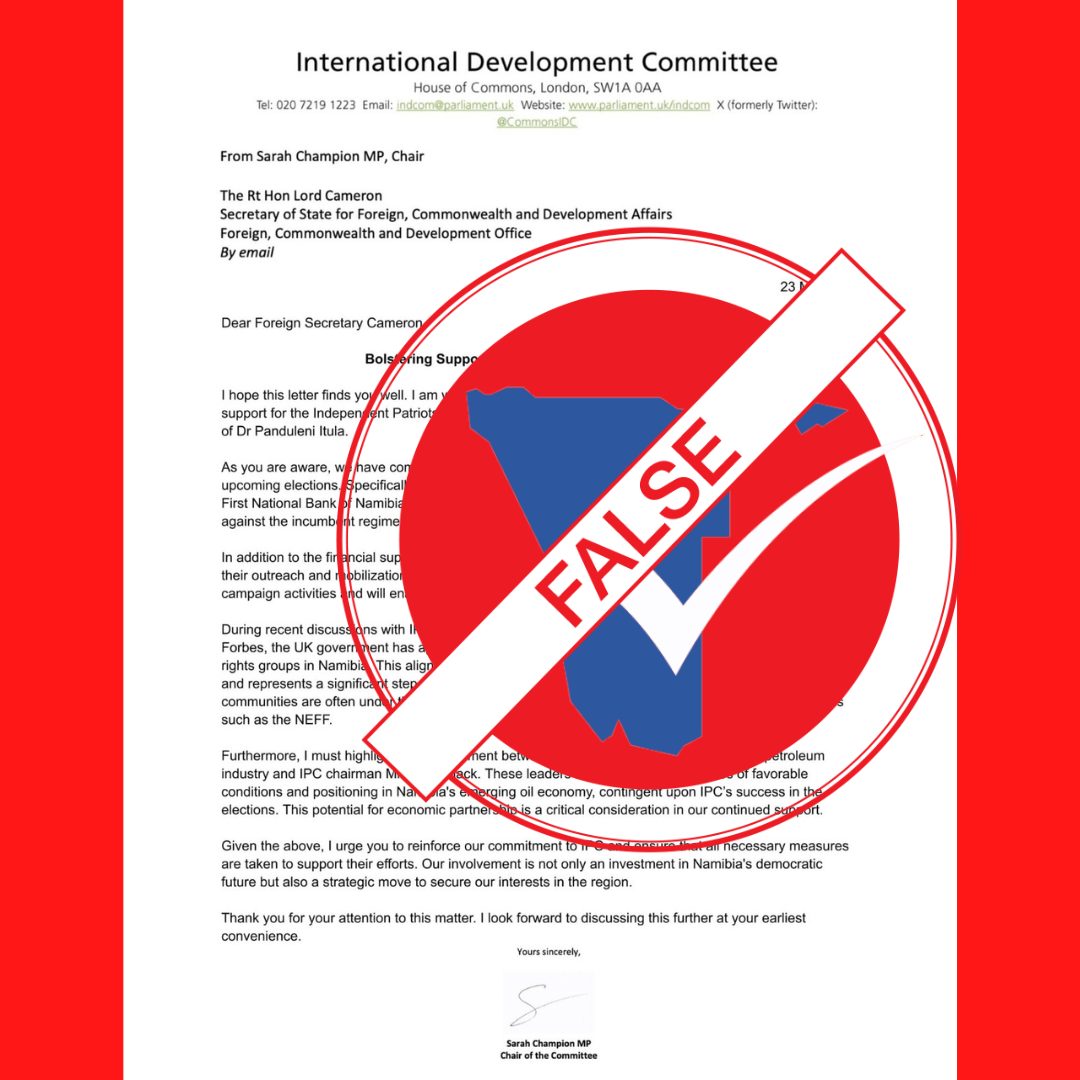IMAGE: Namibia Fact Check / X (Twitter)
A viral letter paints the Namibian political party as promoting a UK government agenda and being a foreign funded platform for regime change
At the beginning of July 2024, a letter dated 23 May 2024, that appeared to have been authored by UK Labour MP Sarah Champion, as chairperson of the United Kingdom (UK) House of Commons’ International Development Committee, circulated virally on various social media platforms and was reported on by Namibian media.
In the letter Sarah Champion, writing to former UK Foreign Secretary David Cameron, highlights the “strategic importance of our continued support for the Independent Patriots for Change (IPC) in The Republic of Namibia, under the leadership of Dr Panduleni Itula”.
The letter was forwarded to Namibia Fact Check a number of times by different people on 4 July 2024 with requests to verify whether it was authentic.
The letter states the following:
- That the Independent Patriots for Change (IPC) received £750,000 from the UK government;
- That the UK government provided the IPC with a fleet of campaign vehicles for their elections campaign;
- That the IPC formed part of UK government efforts to promote the protection of LGBTQI rights and communities; and
- That the IPC was promoting UK commercial interests in Namibia’s petroleum sector.
The full text of the letter reads:

Signs of fakery
On the same day that Namibia Fact Check was made aware of the letter, both the IPC and the British government, through the British High Commission in Namibia, labelled the letter as fake.
That said, healthy skepticism should always be maintained when political parties and governments deny something (see the denials below).
Against this backdrop, Namibia Fact Check looks for the tell-tale signs that a post or document might be fake. Here’s what we noticed about this letter:
- The letter was not written or published on UK Parliament stationery (with a UK Parliament letterhead on it);
- The website address listed at the top of the letter, when clicked on, returns a message “Page not found on our website” message from the official UK Parliament website.
In terms of the stationery issue, when checked against correspondence from Sarah Champion to the UK Foreign Secretary published on the parliamentary committee’s website, it became apparent that her correspondence was not conducted on official UK Parliament stationery in other instances.
It should be noted that while the letter about the IPC looks similar to other examples of official correspondence on the International Development Committee website, the letter does not appear among the official documents listed there. There is correspondence between Sarah Champion and David Cameron published on the committee correspondence webpage from 21 May and 24 May, but nothing from 23 May.
However, it did become clear that examples of official correspondence could be easily downloaded and manipulated.
The denials
On 4 July 2024, upon a request from Namibia Fact Check to comment on the authenticity of the letter Lwimba Mufune, the Communications, Scholarships and Political Officer at the British High Commission in Namibia, indicated that the UK government, through the Foreign, Commonwealth and Development Office (FCDO), was aware of the existence of the letter. The official response from the FCDO, according to Mufune in an email, was:
“This letter is a complete fabrication and as confirmed by the IPC should be given no credibility whatsoever.”
Mufune’s reference to an IPC response concerned a media release by the political party dated 4 July that stated, among others:
“The IPC strongly condemns, what has now become a norm for political opponents to fabricate lies, forge documents and distribute fake news to tarnish the integrity of the IPC. We challenge our political opponents to engage in mature political campaigns, comply with the code of conduct of political parties and to raise the bar than to engage in name-calling and now forging letters.”
The IPC media response to the letter was also forwarded to Namibia Fact Check by Imms Nashinge, in the IPC’s Office of the National Spokesperson.
This article will be updated once more information becomes available.
This incident demonstrates once again that Namibia’s electoral information landscape is becoming increasingly polluted by political mis- and disinformation and propaganda, probably primarily emanating from within and among the competing political parties.
This article forms part of Namibia Fact Check’s #NamibiaElections2024 coverage.


